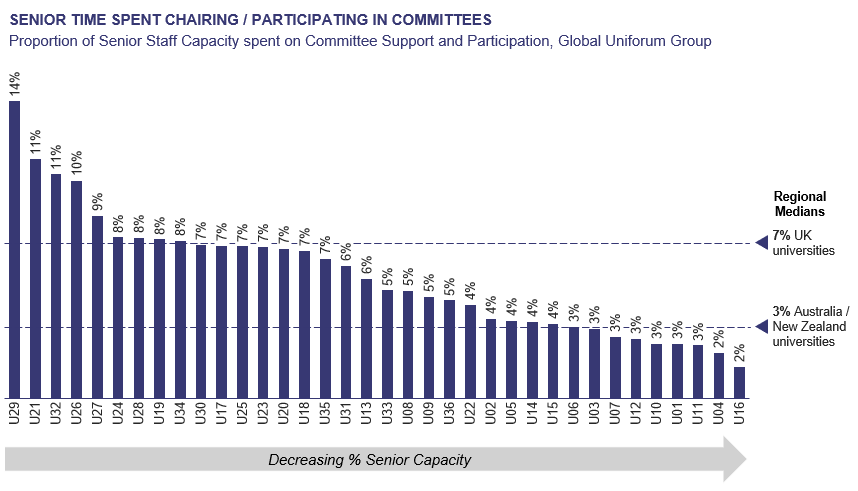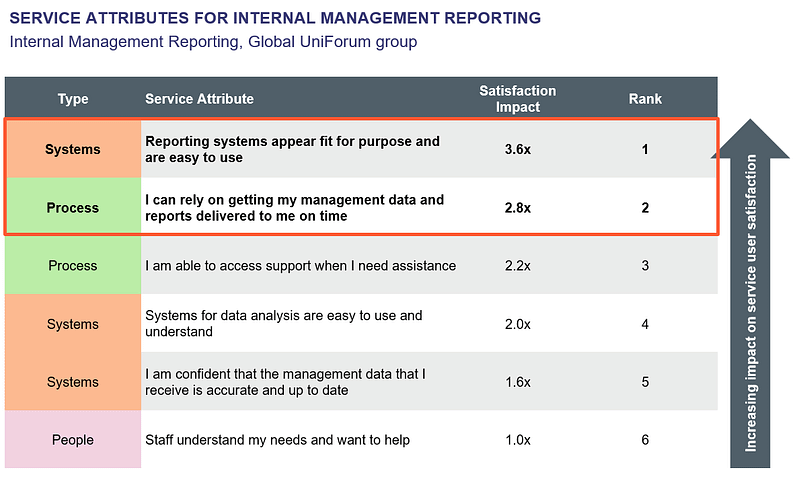Given the immensity of the challenges that universities are facing right now, there is no such thing as an easy decision. The problem is that new challenges and complexities are playing into an environment where decision-making has always been hard.
Over the past few months Cubane has been listening to university strategic decision-makers, particularly those in strategy and planning roles. These member conversations consistently reveal the real and long-standing challenges universities face in terms of making decisions. Evidence from the UniForum programme indicates that key to improvement are:
- being conscious of where decisions are taken and how committees should play a part,
- focusing on what matters most to users of management information, and
- tackling the overarching need for good data capability.
The first challenge universities grapple with is the traditional, highly structured environment in which decision-making is expected to take place. The reality of complex and extensive committee and board structures make it difficult to pinpoint exactly where authority for key decisions sits, and how to effectively inform those decisions.
UniForum data suggests that, in many universities, senior leaders spend a material proportion of their time chairing and participating in committees, particularly in the UK. As the chart below shows this can mean as much as a tenth of senior management time! (Committee Support and Participation is just one of the 162 activities captured in the UniForum global Activity Framework.) Conversations with members support the notion that universities rely on committees for tabling a wide range of strategic decisions, but that often times the purpose and scope of committees and how they interact with one another is unclear.

Collaborative decision making can be effective and inclusive, especially for decisions which require broader buy-in across leadership teams, and committees may be useful in providing a forum for this kind of process. However, in order to be effective, it is imperative that there is clear understanding of why certain committees should take responsibility for different stages of the decision-making process and decision types, and that the mechanisms for informing discussions relating to those decisions are well-defined.
Universities also make decisions (more often than not) under conditions of highly devolved authority, for example with planning processes individual to each faculty or local approaches to service improvement. While devolution of authority enables decisions to be made more closely to the staff and students they ultimately affect, it also means there are many stakeholders who require access to good information. Good decision-making processes rely on decision makers having management data and reports to empower them to make those decisions. In an especially devolved environment, this is hard.

UniForum Service Effectiveness Survey results tell us that a good reporting system and timely data are the key service attributes that matter most to users of management information. (The Satisfaction Impact score is a proprietary metric developed by Cubane to highlight ‘what matters most’ out of the service attributes – read more about this topic here.) Although it can be challenging to meet user needs when those users are spread across the university, and even more so when each of their decision-making processes are distinct, focusing on improving the systems and processes for providing management data and reports can make a real difference to decision makers.
The third challenge we are hearing from our members is that data literacy / maturity varies considerably across the sector, including at the decision-making level. In other words, even once there are great processes and systems in place to support data and reporting, decision makers still need the capability to use the information well. University leaders need to be confident in interpreting management information and making good judgements especially when evidence can be conflicting or complex.
What helps in building data literacy? UniForum members who have been successful in improving here have found that it helps to make targeted investments in specialist data analytics capacity, organised with a focus on capability building in the institution. With good processes and systems to support, these specialist teams do not have to be tied up in manually producing reports for boards and committees, but instead can lead transformational work to bring data to life in the institution, through developing fit for purpose dashboards or apps, engaging users with data visualisations, and training users to confidently self-serve. Investment in these areas can be an excellent starting point in building a culture of evidence-based decision making.
These are three common themes and key challenges that stood out for the universities we spoke to: do they match your own? If you’d like to share your own experiences or good practice around data and decision-making in a university, or hear more about lessons learned from the global UniForum programme including how Service Effectiveness benchmarking is relevant to your institution, then please do get in touch via LinkedIn or by contacting me by email at ariel.rainbow@cubaneconsulting.com.
This article was co-written by Ariel Rainbow, consulting services manager in Cubane’s UK and Europe team, with Phil Copestake, UK and Europe managing director.
